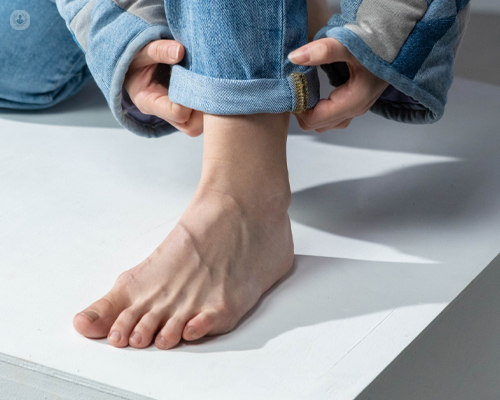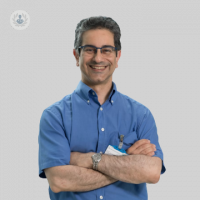Considering EVLA treatment for varicose veins? Here’s what you need to know
Written by:Do you have varicose veins and are considering to have them removed? Professor Vassilis Hadjianastassiou is an expert consultant vascular surgeon who explains different procedures and treatments, and details the newer EVLA treatment and if it is right for you.

Which procedure is right for me?
There are several options for patients. These include doing nothing, having an open operation, and several new non-surgical treatments like foam sclerotherapy, radiofrequency ablation (RFA), superglue and laser (EVLA). A lot will depend on the experience and recommendation of your vascular specialist. If you are not troubled by the appearance of your veins and there are no significant symptoms, doing nothing is a good option. Varicose veins without symptoms or skin effects do not require medical treatment. For patients with symptoms but are not troubled by the appearance, wearing stockings is an option if you are willing to wear them for the rest of their lives. For decades, open surgery has been performed and some patients still prefer it. To avoid open surgery and return to normal activities more quickly, a patient should consider one of the minimally invasive treatments. Before coming to a decision about which treatment is best for you, discuss the options together with your vascular surgeon. No single treatment is the best for everybody. Actually, quite a few patients might need a combination of two or three treatment methods to achieve the best results for their individual needs.
Are all veins suitable for EVLA?
By doing an ultrasound scan before the procedure, you varicose veins may prove to be unsuitable for EVLA. Most often this is because the vein is twisting a lot along its length (zig-zag or small recurrent veins after previous surgery) or multiple little hardened clots are found inside (superficial thrombophlebitis as a result of inflammation of the vein). The majority of patients with troublesome varicose veins are suitable for EVLA. Those who are not suitable can usually be managed with ultrasound guided foam sclerotherapy. EVLA is not recommended for people who are unable to walk (e.g. due to arthritis); in poor general health; or have a propensity to form blood clots or during pregnancy.
Is EVLA treatment successful?
In studies which followed up patients for five years after treatment, EVLA was successful in 95 per cent of veins treated. Other forms of treatment were also found to be successful at five years: radiofrequency ablation (80 per cent success rate), ultrasound guided foam sclerotherapy (75 per cent successful), and open surgery (75 per cent successful). The adoption of one type of treatment alone for each leg is no longer practised by expert surgeons and quite often a combination of these treatments are applied on the same leg to get the best outcome for the patient. Other treatments, such as doing nothing or wearing surgical stockings are more appropriate for some other patients. Knee and thigh-length stockings are effective in controlling symptoms and preventing skin complications. Although, they are only effective when regularly worn and can reliably avoid the necessity of surgery in some patients.
Can I help myself?
Simple measures such as wearing appropriate compression stockings will control the symptoms for many people. Stockings may help to prevent progression or enlargement of varicose veins. If you are overweight you should try to lose weight. Regular exercise is the best gift of health you can give to your legs! If you have to spend time sitting many hours at a desk, please ensure you exercise your calf muscles by pressing against the floor with the tips of your toes, trying to raise your weight from the floor.
If you have varicose veins and you are unsure if EVLA treatment is right for you, go to Professor Vassilis Hadjianastassiou's Top Doctors profile and schedule a consultation.


